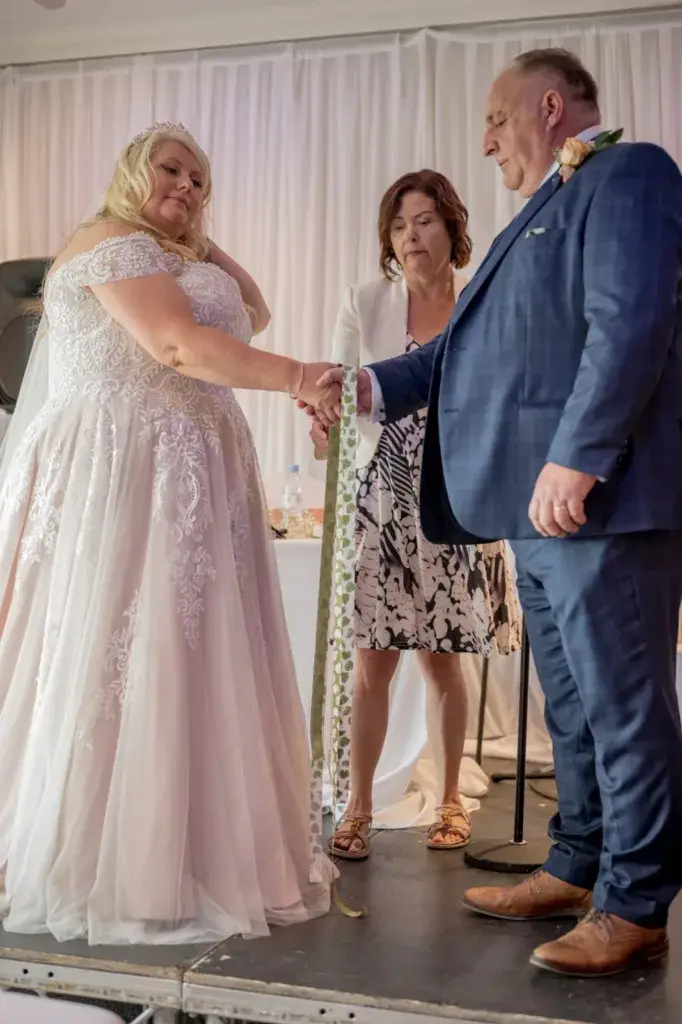Hand-fasting is regaining popularity, but what exactly is it, and why do so many people choose to have it for their ceremony?
What is hand-fasting?
A hand-fasting ceremony is a beautiful and ancient ritual that has been gaining popularity in recent years. It is a symbolic binding of two people in marriage or commitment, and it has its roots in ancient Celtic and pagan traditions. The ceremony involves the couple’s hands being tied together with a ribbon or cord, symbolizing the joining of their lives.
Why do people choose hand-fasting ceremonies?
One of the reasons why people choose to have a hand-fasting ceremony is that it is a more personal and meaningful way to express their commitment to one another. Unlike traditional wedding ceremonies, hand-fasting allows couples to create a ceremony that is unique to them and their relationship. It can include elements from their own culture or spiritual beliefs and can be as simple or as elaborate as they wish.
Another advantage of having a hand-fasting ceremony is that it can be performed by a professional celebrant. A celebrant is a trained professional who specializes in creating and conducting meaningful ceremonies that are tailored to the couple’s specific needs. A celebrant can help the couple to create a ceremony that is truly reflective of their relationship, and that includes elements that are meaningful to them. This can make the ceremony even more special and memorable for the couple and their guests.

In Conclusion
Having a celebrant conduct a hand-fasting ceremony also ensures that the ceremony is conducted in a professional manner. A celebrant is trained to perform the ceremony, and will have all the necessary paperwork and certificates.
A hand-fasting ceremony is a beautiful and meaningful way for a couple to express their commitment to one another. It allows them to create a ceremony that is unique to them and their relationship, and that is conducted by a professional celebrant. With its ancient roots and modern appeal, a hand-fasting ceremony is a great alternative to a traditional wedding ceremony.
